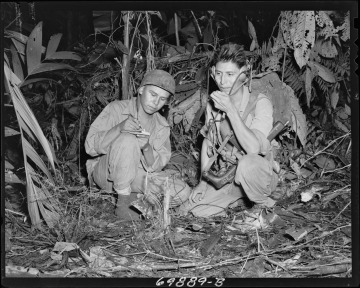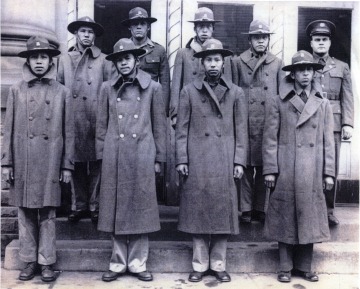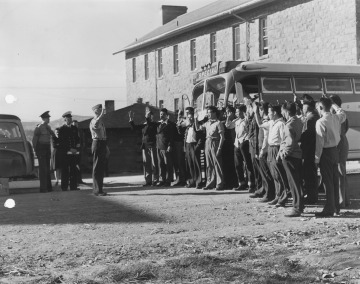1942: Code talkers relay secret military messages
At the outset of World War II, the U.S. recruits American Indians to speak their Native languages to keep telephone or radio messages secret on the battlefield. The Army first recruits Comanches, Choctaws, Hopis, and Cherokees to serve in a special office in Oklahoma. Later, the Marines turn to Navajos. More than 400 serve in the Pacific, speaking in their language to protect the nation that barely a generation earlier had tried to eradicate its usage.
Men from 16 tribes use their languages to help relay secure messages on the battlefield. The code talkers serve in all branches of the U.S. military. Their service in WWII begins to open the eyes of a generation to the need for justice for Native peoples.
- Theme
- Federal-Tribal Relations
- Region
- California, Great Basin, Great Plains, Northeast, Northwest Coast, Plateau, Southeast, Southwest
Henry Bake, Navajo, and George Kirk, Navajo, who served as code talkers in the Pacific Theater.
Courtesy National Archives and Records Administration
Eight Meskwaki Indians from Tama, Iowa, who became code talkers with the U.S. Army's 34th Infantry Division during World War II
Courtesy of State Historical Society of Iowa, Iowa City
First Navajo soldiers recruited by the U.S. Marine Corps to serve as code talkers being sworn in at Fort Wingate, New Mexico
Courtesy National Archives and Records Administration


